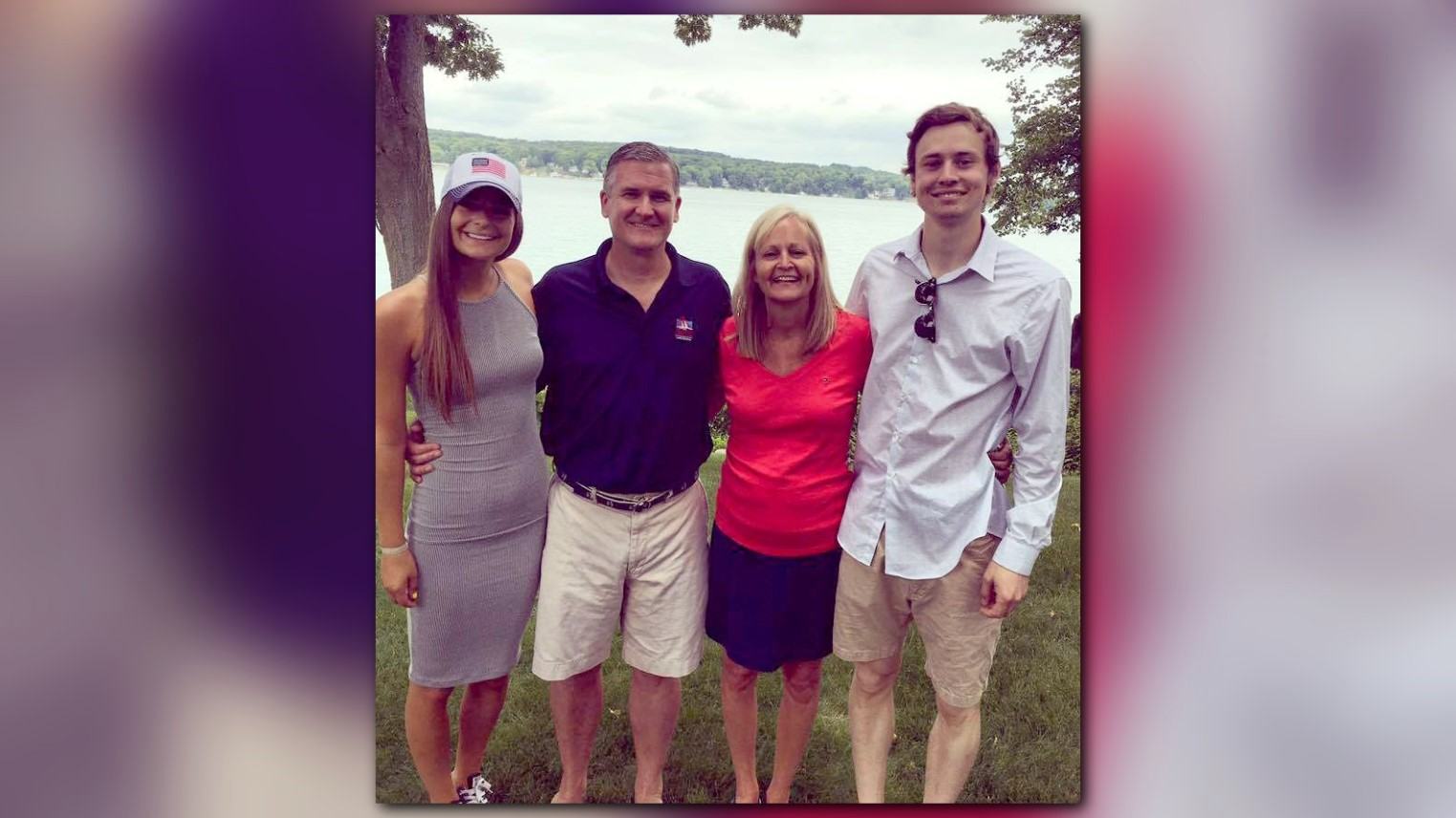The U.S State Department updated its data this week on the number of U.S. citizens who died in Mexico of unnatural causes during the first half of the year.
Not included in the list?
Abbey Conner, 20, a UW-Whitewater student who was pulled lifeless out of a pool under mysterious circumstances just hours after arriving with her family at a Playa del Carmen resort in January.
Conner was found face down and unconscious in the Iberostar Paraiso del Mar pool alongside her older brother, Austin, who nearly drowned as well. She was brain dead and in a coma. She was officially pronounced dead several days later at a hospital in Florida.
“She was dead when she left that hotel,'' said her father, Bill Conner. “You put people who are dead on life support. This is just part of what they do, and they keep getting away with it. It’s unreal.”
“That makes me very angry,” said Ginny McGowan, Abbey Conner’s mom. “It’s just another thing they’re in denial of. They’re going to try to sweep it under the rug.”
A Milwaukee Journal Sentinel investigation into Conner's death, first published in July, found dozens of people have been getting violently ill and blacking out for hours -- sometimes simultaneously -- after drinking small to moderate amounts of alcohol while staying at all-inclusive resorts in Mexico.
Some tourists were sexually assaulted or robbed. Others were taken to jail or kicked out of their hotels. Many said they were gouged by local hospitals that demanded cash before providing treatment. Several reported similar drownings and deaths of loved ones. Often, local police declined to investigate.
In September alone, three more young American men died in two separate incidents that family and friends suspect were tied to tainted alcohol, though few details are yet available.
Their deaths are too recent to appear on the latest State Department report, which says 16 Americans drowned in Mexico between January and June. Homicides of American citizens in Mexico jumped 32%, to 49, compared to the same period in 2016, the report said.
State Department officials declined a request for an interview but noted in a written statement that the death data has limitations.
“This information should not be considered a statistically complete account of U.S. citizen deaths in foreign countries during the reporting period. Only those deaths reported to the Department of State and deaths that can be established as non-natural are included.”
In addition, they said, “Our highest priority is the safety and security of U.S. citizens.”
The department has another priority as well.
“The U.S. government actively encourages U.S. commerce, trade, and investment with Mexico as well as tourism and educational and cultural exchanges,” a statement on the agency’s website reads.
Mexican PR blitz launched
On Monday the State Department hosted meetings in Washington, D.C., with the governor of Quintana Roo, home to Mexico’s most popular tourist destinations, Cancun and Playa del Carmen.
Carlos Joaquin spent the week in the U.S. launching a campaign to promote his region as safe and welcoming of Americans.
He met with officials from three State Department bureaus with oversight of economic affairs, citizen safety and drug enforcement.
Joaquin also met with tour operators and travel reporters to unveil a public relations blitz aimed at convincing wary Americans that they have little to worry about while vacationing in Mexico.
Joaquin did not respond to repeated attempts by the Milwaukee Journal Sentinel to interview him, but he chronicled some of his meetings on Facebook and Twitter.
“I held a meeting with Flight Centre/GoGo Directors, Apple Leisure Group and Sun Country Airlines, leading tour operators and air routes to expose the promotion, investment and security strategies that are being implemented in Quintana Roo,” he wrote in a Facebook posting on Wednesday.
State Department officials would not disclose specifics of their discussions with Joaquin or say whether they were satisfied with plans to increase safety and address problems with illegal alcohol.
“We continue to be concerned about alcohol from unregulated sources — especially in areas frequented by U.S. citizen tourists,” agency officials wrote in an email to the Journal Sentinel.
Recent deaths raise questions
One of the young men who died in September was at a resort near Playa del Carmen for a wedding; the other two were at a bachelor party on the nation's west coast near Tijuana.
Ryan Lindsay, 33, was at a friend’s wedding at Azul Fives Resort. He was Snapchatting family and friends back home in Kansas City and elsewhere in the states around 9:30 p.m and seemed to be having fun at the reception, his uncle Daniel Watkins said.
Sometime around 10:30 p.m. he became violently ill, vomited and began losing consciousness.
Friends helped him to the bathroom. They noticed he was turning blue.
A surgeon at the reception tried unsuccessfully to resuscitate him. He was pronounced dead in the ambulance.
Watkins said Lindsay was an athletic, fit, healthy man who was not into drugs and had no underlying medical conditions.
The hospital did not supply a full toxicology report or other evidence to his family, Watkins said, but reported that he died of natural causes.
That will keep Lindsay's death off the next State Department report of non-natural deaths for the second half of 2017.
Lindsay's mom asked the hospital to save a snippet of his hair for her. She said what she got from them was absolutely not his hair and felt fake.
Hotel officials told the Journal Sentinel their staff followed protocol.
“The cause of death was unrelated to alcohol and there has never been an alcohol related death at Karisma Hotels & Resorts,” they said in a statement. “We are proud to deliver the award-winning Gourmet Inclusive Experience, an entirely new category of luxury vacation. As a part of this Gourmet Inclusive Experience, we use only premium alcohol in every one of our drinks at every one of our properties.”
Hotel representatives would not answer questions about any investigation into the death, about whether anyone at the hotel was interviewed by authorities or whether anyone looked into what alcohol Lindsay was served. They did say that police were not called.
Iberostar officials provided a similar response in July when asked about Abbey Conner's death, saying "we only purchase sealed bottles that satisfy all standards required by the designated regulatory authorities."
Three weeks after the Journal Sentinel report, Mexican authorities swept through 31 resorts, restaurants and nightclubs in Cancun and Playa del Carmen, seizing illegal alcohol and suspending operations at the lobby bar in the Iberostar Paraiso Maya.
As much as 36% of the alcohol consumed in Mexico is illegal and potentially dangerous, according to a 2017 report by Euromonitor International.
One woman whose son drowned in a resort pool in Mexico 10 years ago has been trying to get word out about the dangers to tourists ever since. Maureen Webster’s website, www.MexicoVacationAwareness.com, has become a clearinghouse for people to post accounts of injuries and deaths in Mexico.
Eric Olson, an expert on Mexican security and affairs with the Washington, D.C.-based Woodrow Wilson Center, said he was surprised to learn that the U.S. Department of State doesn’t keep better data on injuries, assaults and other problems tourists encounter in Mexico.
“It’s disturbing,” he said. “That’s what data-driven policing is all about.”
He noted that the State Department works hard to maintain harmony among the bureau’s competing interests, but there’s a natural tension.
“They have a moral responsibility to warn Americans. They don’t want them to wander into an area that’s inherently unsafe, and they do that. On the other hand, other parts of State Department are responsible for the bilateral relationship,” he said.
“The economic well-being of the United States and Mexico are closely linked and there are all these other components of the relationship,” he said. “It’s a delicate balance.


